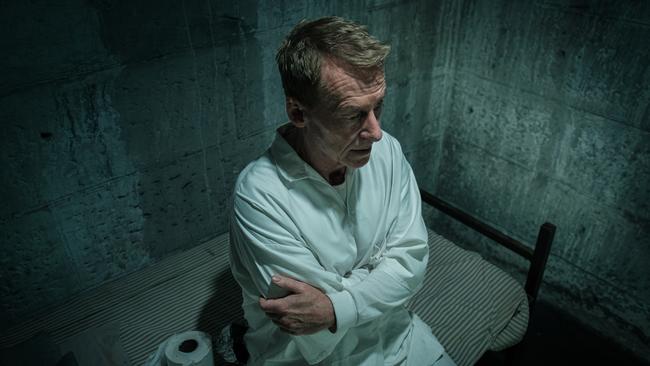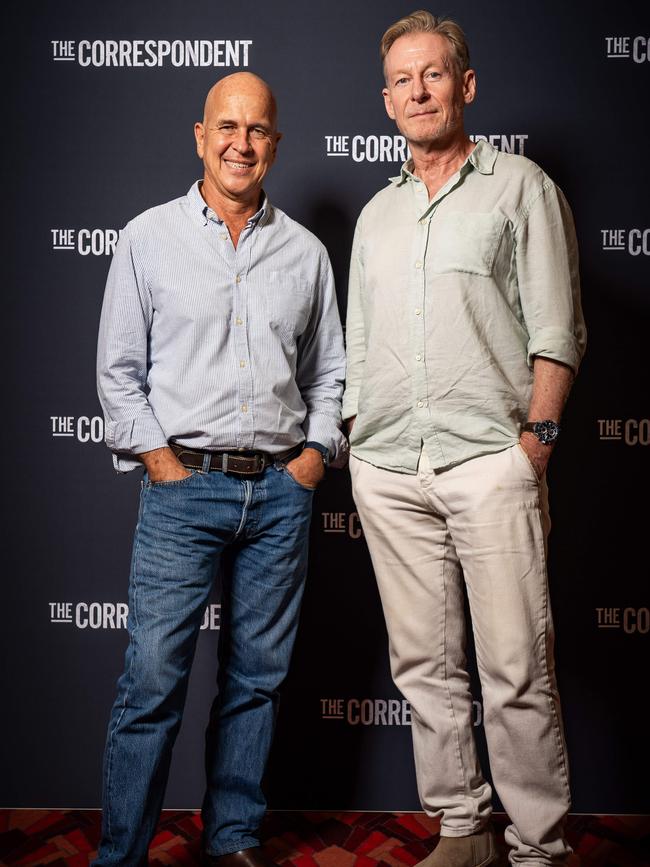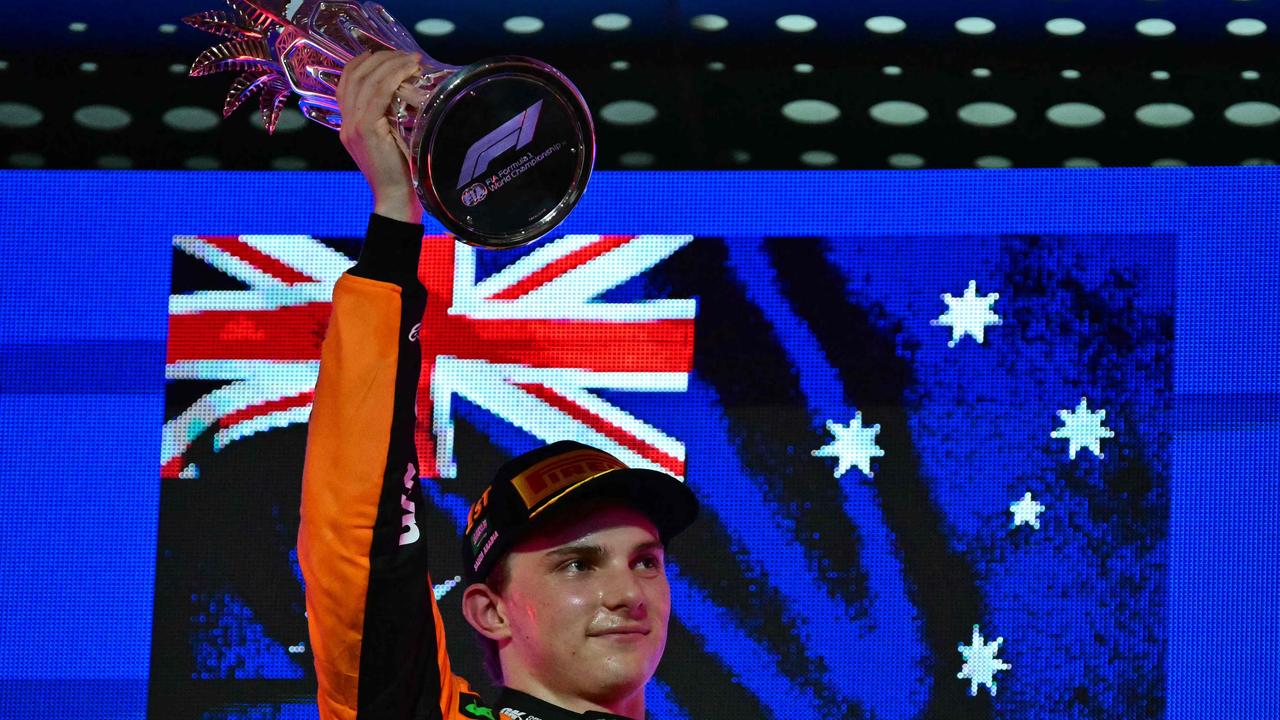Inside a journalist’s nightmare story of detention
As I watched Richard Roxburgh’s understated performance, I wondered if the internal strength Peter Greste needed to survive was one of the traits that made him an award-winning war correspondent.

I’ve had a few tough assignments in 40-plus years of journalism but I will not complain about them after watching The Correspondent, a powerful drawn-from-life drama about Australian journalist Peter Greste’s arrest, imprisonment and trial in Egypt.
“It’ll only be two or three weeks,’’ Greste’s colleague tells him when he agrees to fill in at the Cairo office over the Christmas period. It’s 2013, the protesters-on-the-streets Arab Spring, and he is working for Al Jazeera.

Greste (a controlled Richard Roxburgh) is in his room at the Marriott Hotel when the Egyptian security forces come knocking. He is arrested, interviewed — “You will not be returning to your room” — and put in prison to await trial.
When he asks a lawyer what will happen to him, the reply is, “Depending on the charges, anything.”
He is accused of assisting the Muslim Brotherhood, an Islamic group branded a terrorist organisation, and broadcasting fake news to destabilise the Egyptian regime. The $US1500 in his hotel room safe is considered terrorism funds.
This is an interior film. Most of it takes place in prison and a courtroom and inside Greste’s mind. “Are you capable of living inside your head?” a fellow political prisoner asks. Roxburgh’s understated performance is impressive. As I watched I wondered if the internal strength Greste needed to survive was one of the traits that made him an award-winning war correspondent.
Flashbacks to his time in war-ravaged Somalia, working alongside BBC journalist Kate Peyton (Yael Stone), are well placed alongside his present plight. The climactic moment of their time in Mogadishu is a highlight.
Greste wonders if he is being punished for past sins. “I have caused a lot of pain in my life.” A fellow prisoner advises that “self-pity has no place here”.
He is supported by his brother Andrew (Nicholas Cassim), who comes to Cairo. John Bell and Anna Volska have cameo roles as his parents.
The Australian Embassy comes off poorly. The fact Greste can’t speak Arabic heightens the surreal nature of what is happening. He’s told everything second-hand.
This drama is directed by Kriv Stenders, best known for the 2011 canine caper Red Dog, and written by Peter Duncan, co-creator and writer of the 2010-2013 television series Rake, which stars Roxburgh.
The Correspondent is based on Greste’s 2017 memoir The First Casualty. If you know Greste’s story you will know what happens. Even so, you will feel the close-quarters tension of this Kafkaesque story of a man put in jail, and then in front of a kangaroo court, for doing his job. It is timely considering current events in the Middle East.
There is one moment, brilliantly acted by Roxburgh and tightly filmed by cinematographer Geoffrey Hall, where Greste loses his self-control and breaks down and weeps. It’s unexpected until you think about it and then it makes perfect sense.
The Correspondent (M)
119 minutes
In cinemas





To join the conversation, please log in. Don't have an account? Register
Join the conversation, you are commenting as Logout